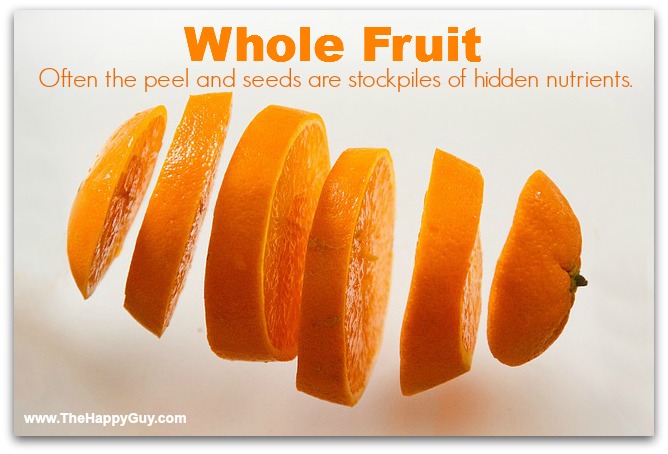Are you considering a juicing diet? Juicing makes a very powerful supplement to a normal, healthy diet. Here are some handy tips to help you juice your way to a better you.
Juicing is certainly not new, but recently it has taken off as new nutritional fads like the Paleo diet include juicing and CrossFit enthusiasts have taken to juicing, too. Fruits and vegetables are essential to any well balanced diet, and unfortunately, the majority of us are not meeting the recommended quantity. Even if we get enough fruits and vegetables, they often contain much fewer nutrients than promised.
 Sneaking extra fruits and vegetables into meals can be tricky at any age, but juicing has proven to be a popular and effective method to getting around that. While juice alone is not a fully-balanced diet, it is a superb way to top up one’s diet to ensure that yo get the nutrients you need.
Sneaking extra fruits and vegetables into meals can be tricky at any age, but juicing has proven to be a popular and effective method to getting around that. While juice alone is not a fully-balanced diet, it is a superb way to top up one’s diet to ensure that yo get the nutrients you need.
Here are six sneaky tips you should know about juicing should be considered before you start your juicing journey.
Fun For All Ages
Juicing is not solely for fitness devotees – but for all ages. Children are reluctant to eat their fruits and vegetables, but yummy juices can turn them into fans of vegetables without them knowing.In fact, it is a time-honoured practice for parents to sneak fruits and vegetables into sweet drinks and gravy so that kids get nutrients they won’t take any other way.
This also applies to seniors. As you age, you especially need to keep nutrition in mind. Fluid intake is especially important in latter years. Juicing provides both the vitamins and minerals you need and the fluids that elderly people often miss.
Juicing is a Supplement or a Dessert Replacement
Juicing should never be your only means of getting nutrients, unless a juice-specific cleansing is recommended by your doctor. Consider juicing for the following:
- A tasty snack between meals.
- A supplement at meals – better than just popping a packed-powder pill.
- Better than chips and cola when watching TV.
- Breakfast when you don’t have time to sit down to eat.
- A great mix with alcohol instead of a less-healthy mix.
- Freeze them as popsicles as a dessert replacement.
Relying solely on juices can be actually detrimental to your health because you won’t receive the protein, fiber, fat or other micro-nutrients that your body needs from a larger variety of foods.
Juicing: better than supplement pills, better than dessert http://t.co/qRPTi33qA6 #nutrition #food
— David Leonhardt (@amabaie) January 6, 2014
Learn To Conserve
Juicing can be expensive because it can take a lot of fruits and vegetables to make the amount you would most likely want. The juices are also unpasteurized, so it is suggested to drink the juice on the day of. To sneak in the most bang for your buck:
- Buy fruits that are in season.
- Buy fruits when they are on special.
- Freeze fruits for later. Tip: chop them up before freezing and place in a freezer bag.
- Freeze juice in ice trays for later.
- Freeze juice in popsicle forms for later.
Juicing Diet ≠ Whole Produce
The disadvantage of juicing is the nutrition you lose in the process, especially for fruits you might eat whole. The peel and seeds hold lots of nutrients – not necessarily the same nutrients as the flesh of the fruit – and eliminating them leaves you with only part of the fruit’s value.
Although there are many benefits to juicing as a supplement to a regular diet and as a replacement to less healthy foods, it does not replace the real thing. A juicing diet is not a complete diet. You should still snack on fruits and follow your mother’s advice to “eat your vegetables” – both raw and cooked.
Potential to Fill Various Needs
The juice extracted has a lot of antioxidants and disease fighting elements. There are a lot of great juicing recipes out there to help you find what you are specifically trying to target and conquer. Remember that juicing should be considered a supplement to an already “normal” and healthy diet. So you can use juicing to target specific nutritional needs, knowing that a basic diet is more or less covered before even factoring in the juice.
Bonus nutrients
Want to sneak in even more nutrition? And add some exotic taste at the same time? Try adding spices. I often add cinnamon to my juice. Sometime nutmeg. And coriander. Maybe you have some favourite spices you can add, too. Did you know that many spices are chock full of nutrients that you might not get any other way in your diet?
On days when I am lacking protein, I also add some whey powder. But then if you’ve read my post on protein powder in soups and shakes, you would already know this, right? Once again, this is NOT a replacement for getting protein from a wide variety of sources – meat, fish, eggs, dairy, quinoa, beans and nuts – but it is an excellent way to supplement on days when you are too rushed to fire up the barbecue.
These are six things that that first-time juicers should be aware of. Do you have any other tips? Please feel free to share them in the comments below.




